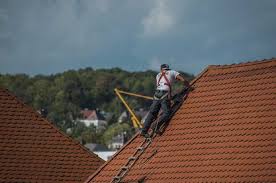How to Handle a Spider Infestation?
Picture this: you are breathing some fresh air outdoors after a long, tiring day. As you wander around, you notice a small web on a window but ignore it. After a few days, large and unsightly spider webs begin to occupy doors, windows, and corners of ceilings. Before you could understand anything, a small web became a spider infestation.
While these spiders are harmless and control the insect population in your house, many spiders are dangerous, especially if some are poisonous.
The best way to prevent them from entering is to understand their behaviour, signs of infestation, learn immediate and long-term actions, safety tips when using DIY methods, and benefits of a professional pest control service in Newcastle. In this blog, we will guide you through spider behaviour to professional intervention to keep your home spider-proof for years.
Understanding Spider Behaviour
Spiders are naturally drawn to a space that offers them food, shelter, and mates. Dark and empty places around your house are often the safest spots for spiders to hide, build webs, and catch prey. If the basements or corners inside your home have cracks, big gaps, or open windows and doors, then you are most likely to see spiders turning into an infestation.
Identifying the Infestation
Now that you understand why and how your house can attract spiders, let’s move to identify signs that turn a small group of spiders into a large number.
- Webs:
Every single spider species leaves a web that is different from other species. For example, orb-weaver spiders leave round webs, while cobweb spiders produce inconsistent, messy webs. Inspect if your house has different patterns and shapes of spider webs spreading rapidly.
- Egg sacs:
Look if there are spider egg sacs. These are often silky white or brown coloured sacs that are round in shape. As it contains hundreds of spider eggs, eliminating them is crucial from dark, hidden areas.
- Spiders Themselves:
It is a clear infestation sign if you notice spiders crawling regularly, especially in large numbers.
- Shredded skins:
Spiders often leave behind their skins to grow. If you see a large number of spider exoskeletons, a term for shedding skin, your house likely has extensive spiders.
Understanding the size and signs of an infestation is crucial to analysing whether to consider DIY or hiring a pest control service in Newcastle to control the spider population.
How to Remove Spider Infestation Immediately?
When you first notice a spider infestation, take these immediate actions:
1. Vacuum Regularly:
Use a vacuum with a hose attachment to remove spiders, webs, and egg sacs from corners, under furniture, and other hiding spots. After using, throw away the vacuum bag outside immediately to prevent re-infestation.
2. Seal Entry Points:
Seal any cracks, gaps, and other openings that spiders can use to enter with caulk or weather stripping.
3. Use DIY Spider Repellants:
If you prefer natural methods to remove spiders, using a mix of essential oils like peppermint, tea tree, and citrus oils can be effective. Also, water and vinegar solution, chestnut, or a sprinkle of diatomaceous earth around cracks and hidden corners is a safe and harmless treatment.
4. Reduce Clutter:
Spiders love unorganised areas to hide themselves. Declutter areas like basements, attics, and garages to reduce hiding places.
5. Remove Food Sources:
Reduce the insect population in your home to prevent spiders from attacking them. Use insect traps and repellents.
Long-Term Control Measures
Apart from immediate response for spider pest control, let’s also understand how to future-proof your home.
1. Regular Cleaning:
Clean less-used rooms and common spider spots regularly to keep the home free from webs and egg sacs.
2. Outdoor Maintenance:
Trim vegetation from your backyard. Keep firewood and other waste away from the house.
3. Proper Lighting:
Outdoor lights can attract insects, which in turn attract spiders. Use yellow or sodium vapour lights for your outdoors to prevent insects.
4. Pest Control Services:
Consider hiring a professional spider pest control service if the infestation is severe. They can provide thorough treatments and ongoing monitoring to keep spiders at bay.
Safety Tips When Performing DIYs:
When dealing with spiders, especially when there are dangerous species like black widows or brown recluses, take the following safety precautions:
- Wear long-sleeved clothes, gloves, and closed-toe shoes for protection.
- If using chemical sprays, follow the instructions carefully and keep them away from children and pets.
- Learn how to treat spider bites and recognise symptoms that require medical attention.
Dealing with Poisonous Spiders
Handling an infestation involving dangerous spiders requires extra caution and specific strategies:
1. Identification:
Research more about black widows and brown recluses, and learn how they look or behave. If you cannot gather enough knowledge, spider pest control companies in your region should be on a priority call for dealing with such species safely.
2. First Aid Knowledge:
Be familiar with the first aid procedures for bites from venomous spiders. Keep a first aid kit handy and know when to seek medical attention.
Professional Pest Control Solutions
Professional pest control services can be a game-changer when dealing with a regular or severe spider infestation. Here are some benefits of hiring a professional.
1. Expert Knowledge:
Pest control experts understand the physical traits of a spider species in terms of their body structure, leg structure, number of eyes, colour and patterns on a spider body.
Also, they can quickly identify the web to understand which spider is present in your home, analyse other features, and behaviour to understand the type of spider and find a treatment that is best suitable to remove them.
2. Comprehensive Treatment:
Spider pest control professionals use a combination of treatments, including chemical sprays, traps, and physical removal, to address the spider’s life cycle.
3. Safety:
Professionals can treat dangerous spiders safely and use safe pesticides for your family and pets. Pet-safe treatments are highly effective especially when your pets are sensitive or have allergies to chemicals or pesticides.
4. Prevention Tips:
After treating your home, pest control experts can offer valuable advice on how to prevent future infestations, such as maintenance tips and environmental modifications.
Final Words
We hope you enjoyed reading this blog. Handling a spider infestation requires a combination of immediate actions and long-term preventive measures. We outlined how to understand spider behaviour, the extent of the infestation, and when to use DIY and professional solutions to effectively manage and prevent spider problems in your home.
Remember, maintaining a clean, clutter-free environment and sealing entry points are key to keeping your home spider-free. If the infestation persists, don’t hesitate to seek professional pest control service in Newcastle to ensure the safety and comfort of your home.
OzPest Solutions in Newcastle conducts regular inspections to prevent minor issues from becoming major infestations. They also make sure that all family members are aware of the measures to control spiders and know how to respond if they encounter one. Contact today for 6-month pest-free treatments!







